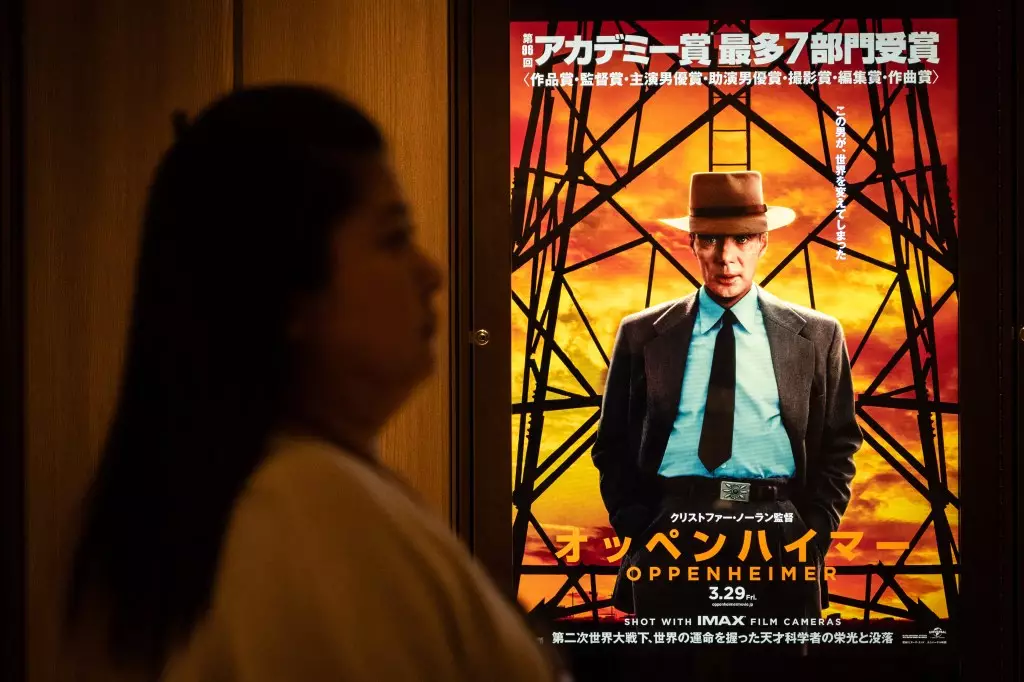Christopher Nolan’s film, Oppenheimer, has finally opened in Japan, eight months after its global release. The movie, which won the Best Picture Oscar, revolves around the race to develop the atomic bomb. However, the film has received a mix of reactions from the audience in Japan. Some have praised the movie for its portrayal of the eponymous physicist, while others have found it uncomfortable to watch.
There have been reports of confusion regarding the absence of explicit depictions of the devastating 1945 bombings of Hiroshima and Nagasaki in the film. In response to these concerns, Nolan explained that the decision was made to stay true to Oppenheimer’s subjective point of view. He argued that deviating from the physicist’s experience would betray the storytelling terms. Despite sensitivities to the subject matter, Universal’s local distribution partner, Bitters End, decided to release the film in Japanese cinemas in 2024. This decision came after months of dialogue and careful consideration of the sensitivities of the Japanese audience.
As the film premiered in Japan, some cinemas posted warnings about the movie’s content, given its inclusion of scenes depicting nuclear tests and the aftermath of the bombings. Audience members expressed mixed feelings after watching the film. While some viewed Oppenheimer as a great man wrestling with guilt and regret, others felt disgusted by the scenes celebrating the creation and dropping of the atomic bomb. One student mentioned gaining a new perspective on the use of atomic bombs, both from an American and a global standpoint.
Residents of Hiroshima shared their thoughts on Oppenheimer, with some praising its cinematic quality but feeling uncomfortable with certain scenes. Some felt that the film failed to fully depict the horror of nuclear weapons, particularly from Hiroshima’s standpoint. Others, like Professor Masao Tomonaga, saw the film as anti-nuclear, appreciating Oppenheimer’s shock at the reality of the atomic bombings. However, there was a desire among some audience members to see a more comprehensive portrayal of the victims and the aftermath of the bombings.
Despite the mixed reactions, there was recognition of the film’s focus on Oppenheimer as a man grappling with his conscience. The decision to center the narrative on Oppenheimer himself, rather than widening the scope to include the aftermath of the bombings, received varied responses. Some felt that this approach was justified, as it highlighted the internal conflict of the protagonist. However, others expressed a desire for a more holistic portrayal of the impact of nuclear weapons to foster a future without them.
Christopher Nolan’s Oppenheimer has sparked diverse reactions in Japan, prompting discussions about the depiction of sensitive historical events and the consequences of nuclear warfare. The film’s nuanced portrayal of Oppenheimer’s internal struggle has resonated with some viewers, while others have called for a more comprehensive representation of the victims and the horrors of the atomic bombings. As audiences continue to engage with Oppenheimer, the film serves as a catalyst for reflection on the past and contemplation of a future free from the threat of nuclear weapons.

